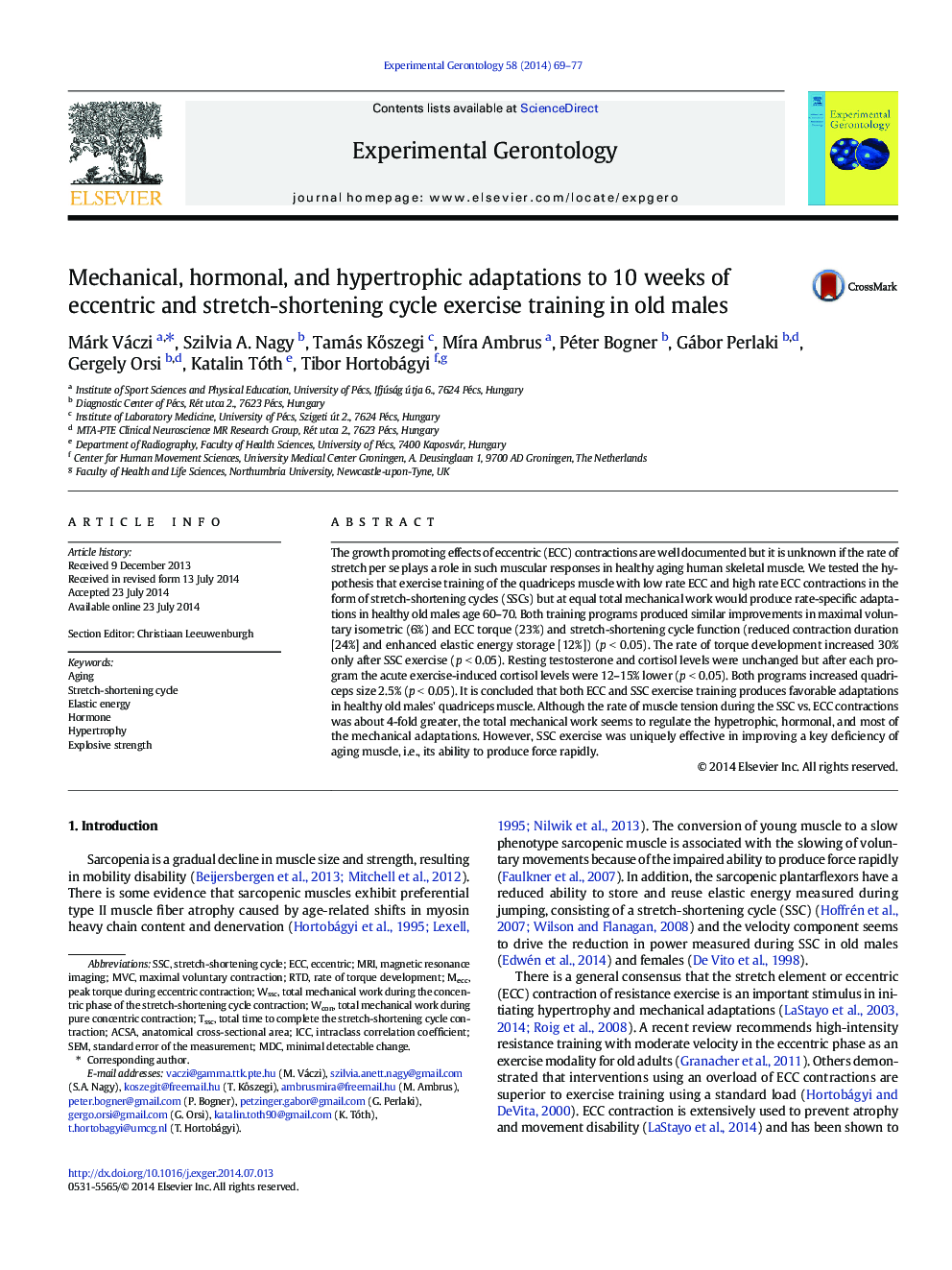| Article ID | Journal | Published Year | Pages | File Type |
|---|---|---|---|---|
| 1906260 | Experimental Gerontology | 2014 | 9 Pages |
•Old males exercised with either eccentric or stretch-shortening cycle contractions.•Maximal voluntary strength improved uniformly.•Endocrine and hypertrophic adaptations were stretch rate-independent.•Stretch-shortening cycle function improved similarly after the two interventions.•The stretch-shortening cycle exercise produced superior gains in explosive strength.
The growth promoting effects of eccentric (ECC) contractions are well documented but it is unknown if the rate of stretch per se plays a role in such muscular responses in healthy aging human skeletal muscle. We tested the hypothesis that exercise training of the quadriceps muscle with low rate ECC and high rate ECC contractions in the form of stretch-shortening cycles (SSCs) but at equal total mechanical work would produce rate-specific adaptations in healthy old males age 60–70. Both training programs produced similar improvements in maximal voluntary isometric (6%) and ECC torque (23%) and stretch-shortening cycle function (reduced contraction duration [24%] and enhanced elastic energy storage [12%]) (p < 0.05). The rate of torque development increased 30% only after SSC exercise (p < 0.05). Resting testosterone and cortisol levels were unchanged but after each program the acute exercise-induced cortisol levels were 12–15% lower (p < 0.05). Both programs increased quadriceps size 2.5% (p < 0.05). It is concluded that both ECC and SSC exercise training produces favorable adaptations in healthy old males' quadriceps muscle. Although the rate of muscle tension during the SSC vs. ECC contractions was about 4-fold greater, the total mechanical work seems to regulate the hypetrophic, hormonal, and most of the mechanical adaptations. However, SSC exercise was uniquely effective in improving a key deficiency of aging muscle, i.e., its ability to produce force rapidly.
